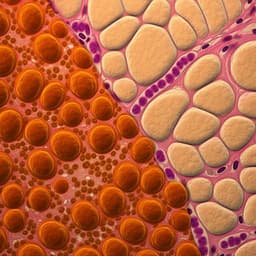
Medicine and Health
Neolithic Yersinia pestis infections in humans and a dog
J. Susat, M. Haller-caskie, et al.
This groundbreaking research by Julian Susat and colleagues uncovers Yersinia pestis infections in two Late Neolithic individuals from Warburg, revealing distinct strains and independent infection events, shedding light on the dynamic relationship between early human settlements and disease.
~3 min • Beginner • English
Related Publications
Explore these studies to deepen your understanding of the subject.







